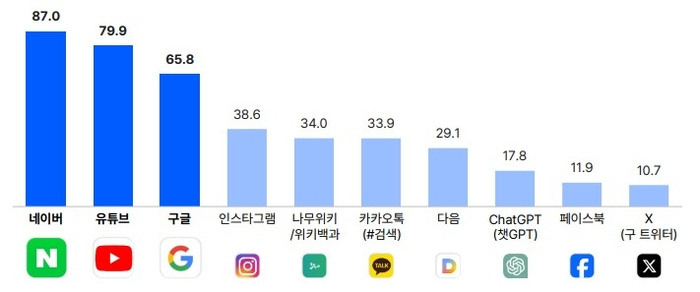Kimchi Premium is a weekly series that looks back at the hottest topics in the Korean crypto community.
Keyword of the Week: Worldcoin
Worldcoin is a project that offers Worldcoin (WLD) tokens to individuals who prove their humanity through iris scanning. Its purpose is to ensure a basic income for humans in a future where AI might replace jobs. Created by OpenAI's Sam Altman, the project needs little introduction.
In Korea, approximately 90,000 people have downloaded the World App, with about 30,000 completing iris authentication. However, the project has faced legal challenges in Korea, resulting in a fine of over 1.1 billion won (around 800 thousand USD) for violating personal information protection laws.
According to Yonhap News:
The investigation revealed that the Worldcoin Foundation and TFH, which was entrusted with personal information processing by the foundation, collected personal information, including iris data, without a legal basis and failed to comply with the Personal Information Protection Act when transferring this data overseas.
Specifically, the Worldcoin Foundation failed to properly inform subjects about the purpose of collection and use, as well as the retention and usage period when collecting iris information in Korea.
Notably, iris codes are sensitive information that can identify individuals and cannot be changed. Therefore, separate consent and security measures should have been implemented, but these requirements were not met.
It was also confirmed that the Worldcoin Foundation and TFH transferred personal information collected in Korea to foreign countries, including Germany, without notifying the subjects of relevant details.
Furthermore, the Worldcoin Foundation did not establish a method for requesting deletion or suspension of iris code processing, and TFH's age verification process for children under 14 during World App registration was found to be inadequate.
This news is particularly significant because Korea accounts for a substantial portion of WLD trading volume. As of October 6, Korean exchanges account for about 16% of the total WLD trading volume. Most of this volume occurs on Bithumb, making it the second-highest trading volume after Binance among all exchanges.
In July, @DefiSquared heavily criticized Worldcoin on Twitter, pointing out the abnormally high valuation of WLD, signs of price manipulation by the project team, and tokenomics that heavily favor insiders. He warned that Korean retail investors might become “unfortunate victims,” noting that while only 2.7% of the total WLD supply was in circulation, the fully diluted value (FDV) reached $30 billion, with about 25% of the circulating supply deposited on Bithumb.
[…] many of whom potentially can’t even read English well enough to understand the situation. At the time of writing, nearly 25% of all circulating WLD is held on Bithumb, and despite the looming unlock emissions, still continuing to rise:
Google Trends also shows the keyword "Worldcoin"(월드코인) in Korean closely mirrors WLD's price movements, suggesting that Koreans were more likely to have purchased WLD during its peak. WLD rose to about $12 and has since experienced a nearly 90% decline.
More tragically, not only crypto-savvy young adults but also elderly people were drawn to Worldcoin, visiting Orb locations for iris recognition and WLD tokens. While it's unclear if these older individuals purchased WLD tokens, they could have suffered significant losses if they did.
As seen in the video above, Orbs were installed in various locations around Seoul, particularly in food and beverage establishments. Operators of these Orbs receive WLD as a reward for each new iris authentication. I am guessing this led to a marketing strategy where venues encouraged visiting customers to authenticate their irises for "free money."
And I think this marketing approach sparked concerns about collecting iris information from uninformed elderly individuals. In March, when Worldcoin was at its peak popularity, Korea's Personal Information Protection Commission began investigating due to numerous complaints.
While it's theoretically impossible to reconstruct personal biometric information from the iriscodes generated after being scanned by the Orb, most people can't fully understand Worldcoin's technology. The act of scanning one's iris can feel intrusive, which likely contributed to the controversy.
An interesting phenomenon I've observed is the significant demand for Worldcoin-related content on YouTube. In my channel's search statistics, the keyword "Worldcoin" accounts for about 35% of searches, more than double the second-place term.
A quick YouTube search for Worldcoin reveals numerous videos predicting price increases and potential positive developments. This is unsurprising, as YouTube is the second most popular platform for information searches in Korea, after Naver.

Koreans primarily use Naver for information searches, followed by YouTube rather than Google. While English speakers predominantly use Google, Korea has unique communities like “Naver Cafes” that produce a significant amount of information only searchable on Naver.
Consequently, most people looking to invest in crypto often encounter distorted information or, in severe cases, fall victim to multi-level marketing scams. The isolated environment created by the Korean language and Naver poses challenges not only for projects seeking to enter the Korean market but also for Koreans trying to discern accurate information.
If you enjoyed this article, check out DeSpread Research.
For the Korean version read here.









